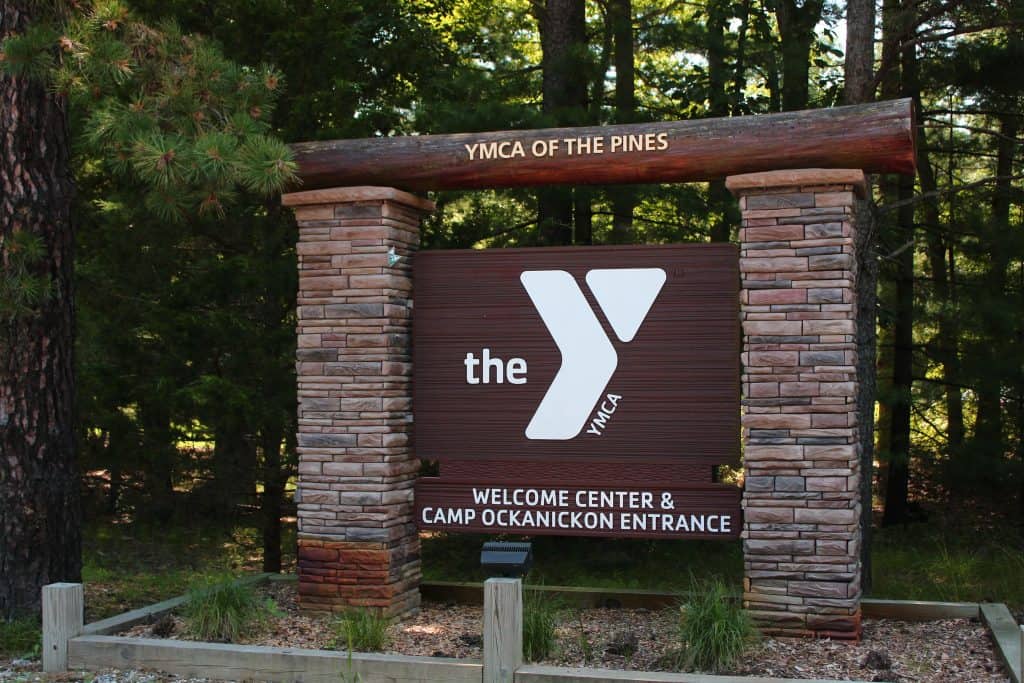

Ordered to shut down by Gov. Phil Murphy in March and placed on hold until the end of June, a revised YMCA of the Pines summer camp is now welcoming back droves of kids, with health and safety guidelines from the .
state in place.
A “new normal” that has impacted organizations large and small during the COVID-19 pandemic was referenced by Mark Dibble, CEO of the regional youth program, as camps reopened.
New and returning campers have noticed a shift in access and use of the facilities. Kids are prescreened in their parents’ cars with temperature and symptom checks, among other measures to ensure safety and prevent COVID exposures.
“We do that and then we keep the kids isolated in groups of 20 when they’re outside, smaller when they’re inside so that, God forbid somebody does come with a case, the greatest exposure that we have is those 20 kids and two or three staff members,” Dibble explained.
The camp dining hall has a 50-child limit. Further changes include the encouragement of masks and observance of the 6-foot distancing rule when campers are indoors and mixing in groups.
New this year is Camp Matocky, a program that comprises Camp Ockanickon (an overnight boys’ camp) and Camp Matollionequay (an overnight girls’ camp) for a revised, extended-day co-ed experience.
Attendees arrive around 9 a.m and are picked up in the evening. The days are taken up with activities and games that mimic the overnight experience without the sleeping quarters. None of the revised camps is without the YMCA’s core values of caring, honesty, respect, responsibility, courage and inclusion.
Dibble explained that revised camp rules prompted some challenging logistics after the program offered its services to the younger children of first responders.
“How we do our scheduling, our small groups, how we let our parents know about this,” he noted of guidelines. “We could not really start doing that stuff until about two weeks out, until we got the word on the requirements.”
The day care started after executives brainstormed opportunities to help out the community during New Jersey’s COVID peak. The state Department of Health authorized conversion of the Medford and Tabernacle facilities to operational, emergency child care.
Dibble hoped to expand child care into the fall as schools finalize reopening plans. Murphy announced on July 20 that parents would have the option of a 100-percent virtual program in their districts. Specifics for each district are to be available by at least 30 days before the first day of classes.
Executives would be required to submit another proposal to the NJDOH in order to be fully licensed in the year. Before- and after-school care was offered via the School’s Out program, extended to Tabernacle, Medford, Medford Lakes and Shamong district students. Parents filled out an additional registration to the Pines to ensure their child receives care.
The proposed extended care has required the organization to resolve more logistical problems before implementation. Dibble said a lack of hires has been attributed to the shift work necessitated by the School’s Out program. Employees could work once in the early-morning hours, then again in the late afternoon, or whatever combination the Pines would see fit.
Drops in revenue posed more obstacles for the Pines’ established policy of accepting anyone who wants to register for camp.
“Going into the fall, if we’re looking at half-day child care, then our expenses are going up and we’re talking about how to cover that by charging parents more, increasing financial aid for those who cannot pay, finding other ways to subsidize it and doing everything we need to do because our costs have gone up significantly,” Dibble noted.
Camp counselors and administrators have opportunities to explore cost-saving measures for the fall, given that summer sign-ups exceeded projected numbers and safety measures are in place.
“Everything changes week to week and our philosophy has been, we’re not communicable disease experts,” Dibble noted. “So we’re going to do whatever the experts tell us.
“We’ve dealt with communicable diseases in the past with norovirus (a contagious virus) that kids tend to get. We’re set up with the procedures to deal with those types of things.”









